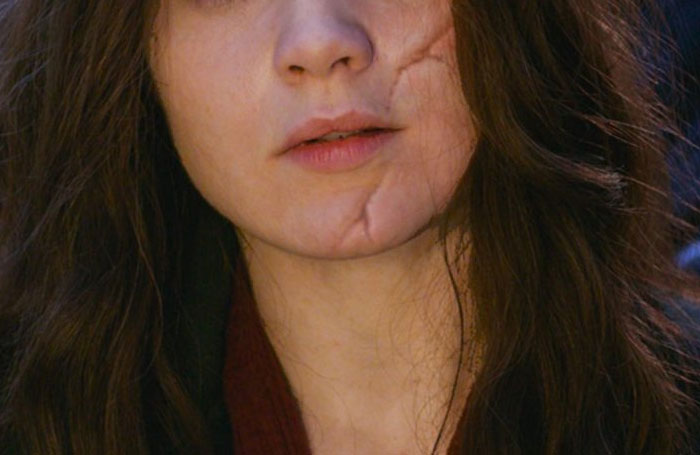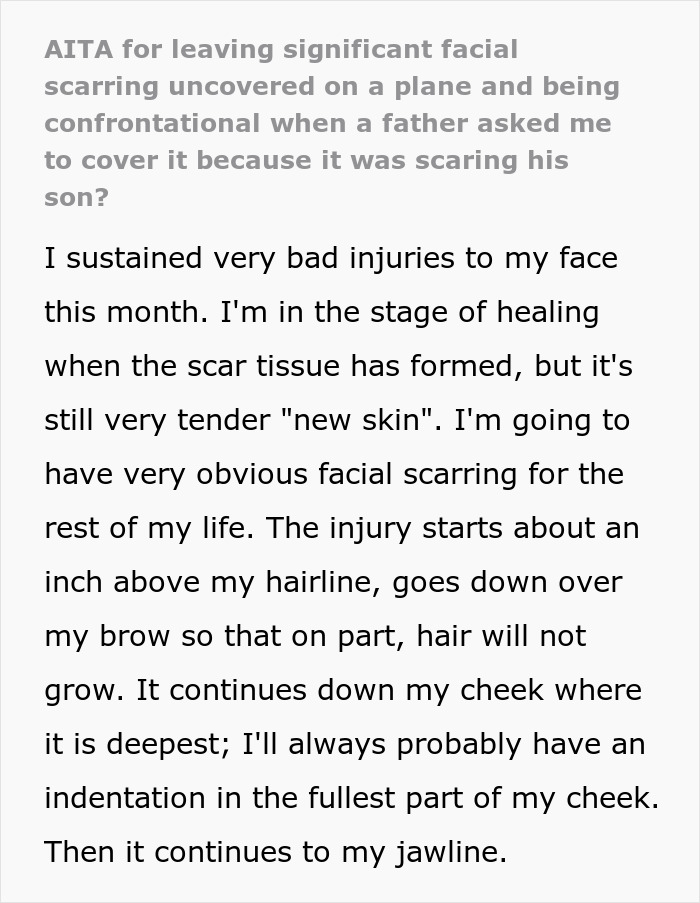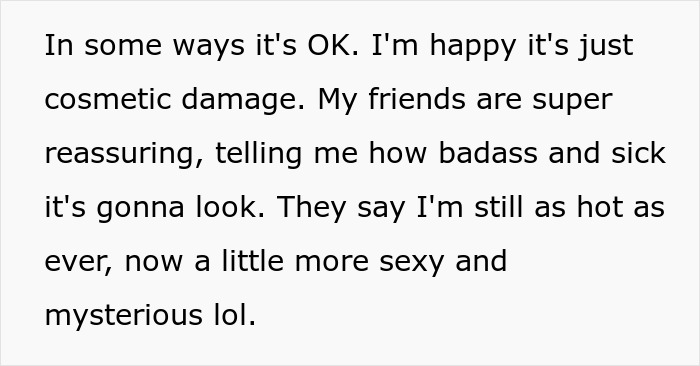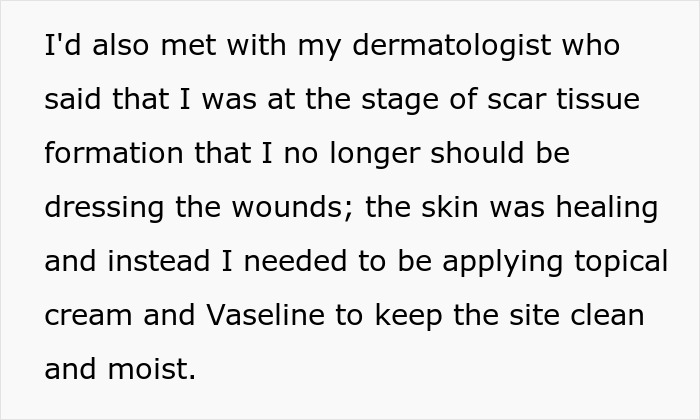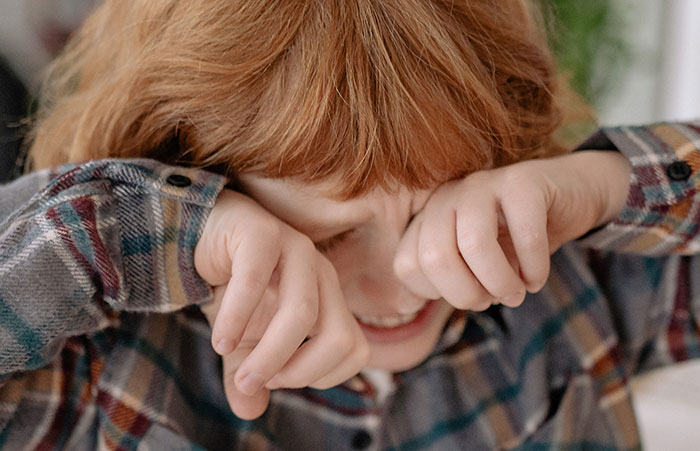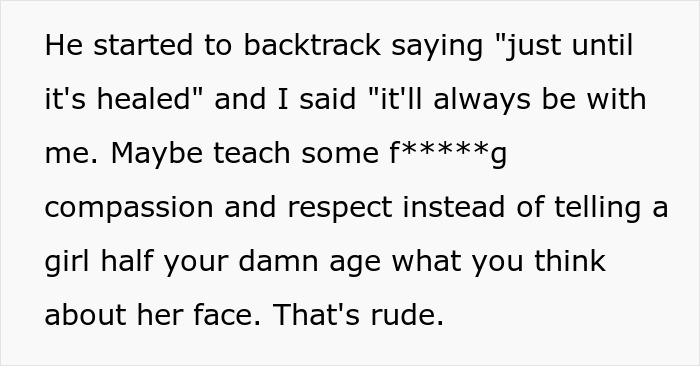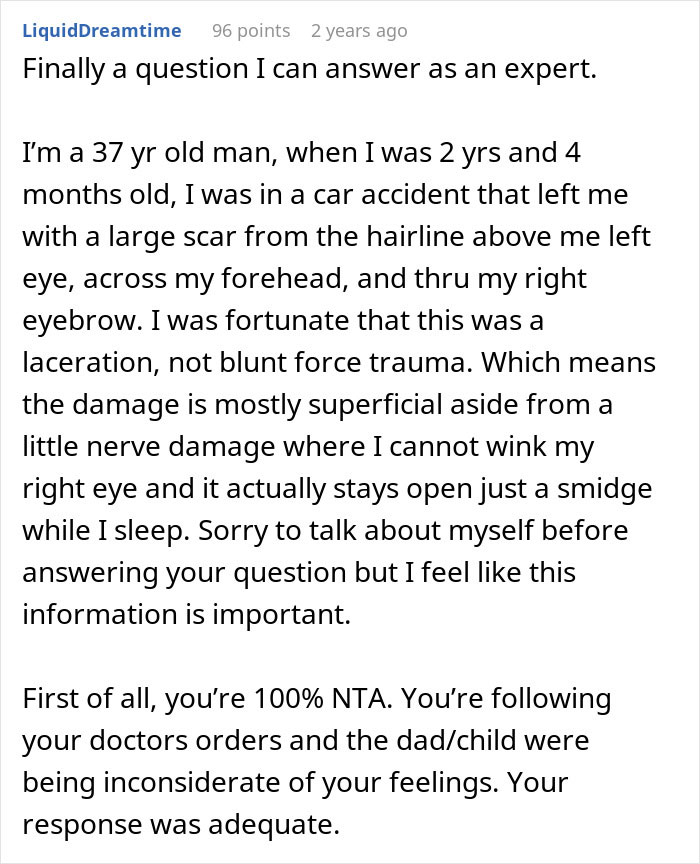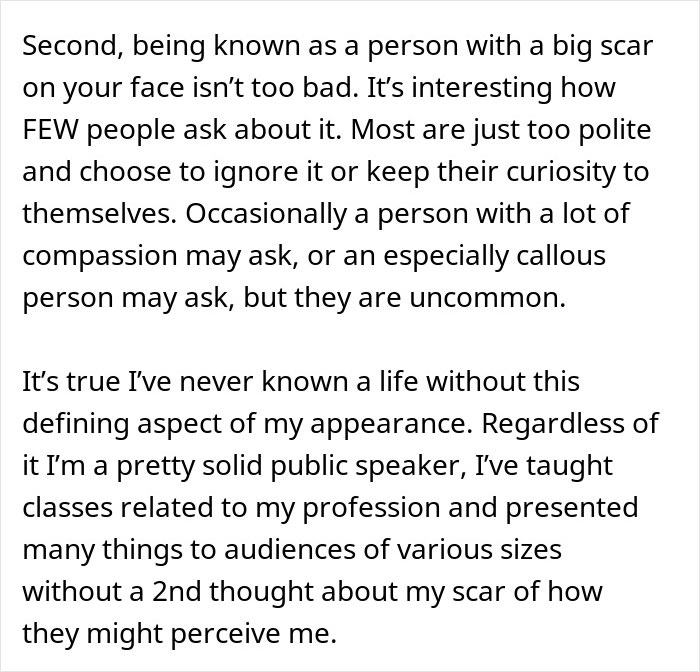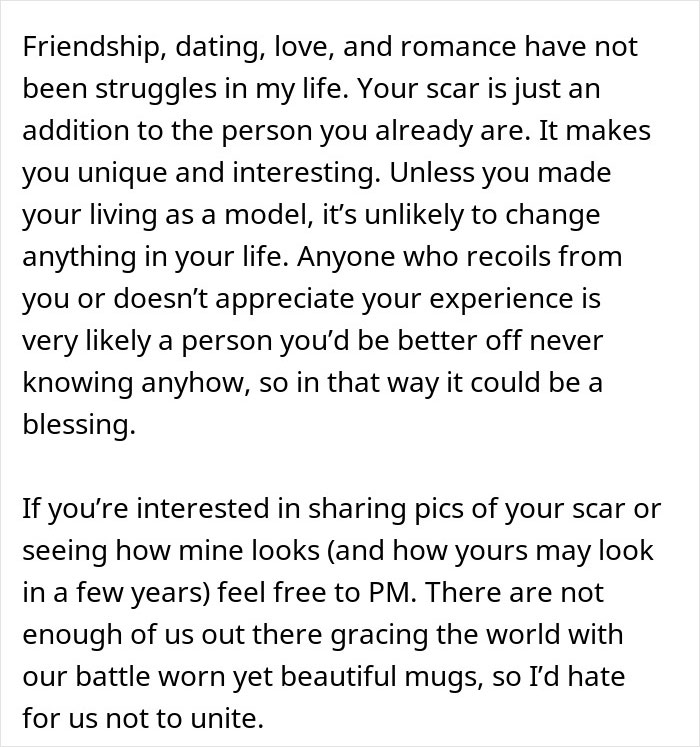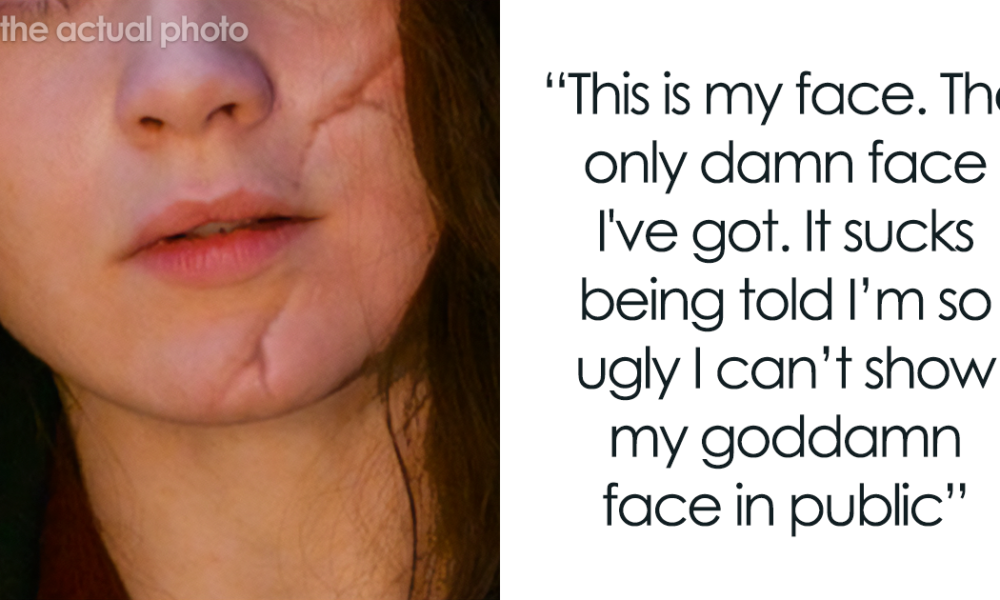
“I like to hide a big scar on my face on an airplane and then blame the other person if they ask me to cover it up?
The skin is a seamless organ. It is like a fine cloth that protects your precious assets. But that means small tears can make a big difference in how you look. Surgery, burns, injuries, or other trauma can cause scarring.
and one Reddit Position A vivid demonstration of how “wearing” an account can make life harder, by a user with a currently suspended account. In it, a woman recalled a particularly unpleasant flight, and a child sitting nearby began to fuss because of the unusual marks on her face.
Not sure how she handled the situation, the Redditor referred to the experience as the platform’s “I [Jerk]?‘ community, solicit the unbiased opinion of its members.
This woman has been through a lot and will have scars on her face for the rest of her life
Image credit: Mortal Engines (not actual photo)
And her online confession shows how insensitive people are about it
Image credit: Jeffry Surianto (not actual photo)
“I said, ‘This is my face. The only … [one] I’m holding”
Image credit: Jan Kurkov (not actual photo)
Image credit: f**kedup face
There are different types of scars. They may appear flat, bumpy, dimpled, or colored, and may be painful or itchy. , depends on many factors, including the type of injury, age and nutritional status.
Studies, like this Reddit post, show that visible scars can have a significant impact on self-confidence, regardless of their original cause. for example, study Published in Journal of Plastic Reconstructive & Aesthetic Surgery We sought to determine how skin lesions affect a person’s quality of life.
Researchers collected data from 34 patients with a wide range of scar types, severity, and onset. They collected 573 statements related to needs disorders due to skin blemishes and grouped them into 44 themes covering five main areas.
- physical comfort and function;
- receptivity to self and others;
- social functions;
- Confidence in the nature and management of the condition;
- emotional health.
“The majority of respondents were dissatisfied with the appearance of their scars, recognizing the psychological implications of stigma, so they employed a range of coping behaviors to hide or compensate for the scars.” The authors of the study said, “In many cases, this made them less sociable and interfered with their communication skills, relationships, work and leisure activities.”
So instead of requiring people with blemishes to stay in the shadows in order to “protect” our children, should we instead teach them empathy?
